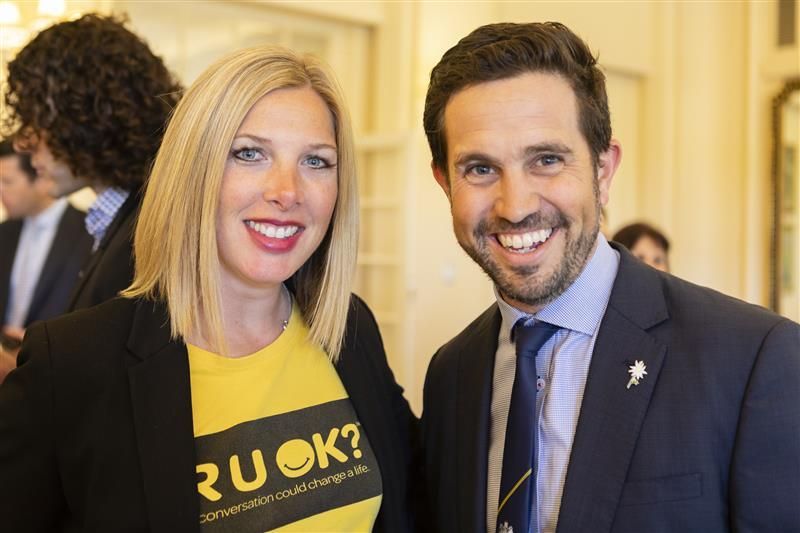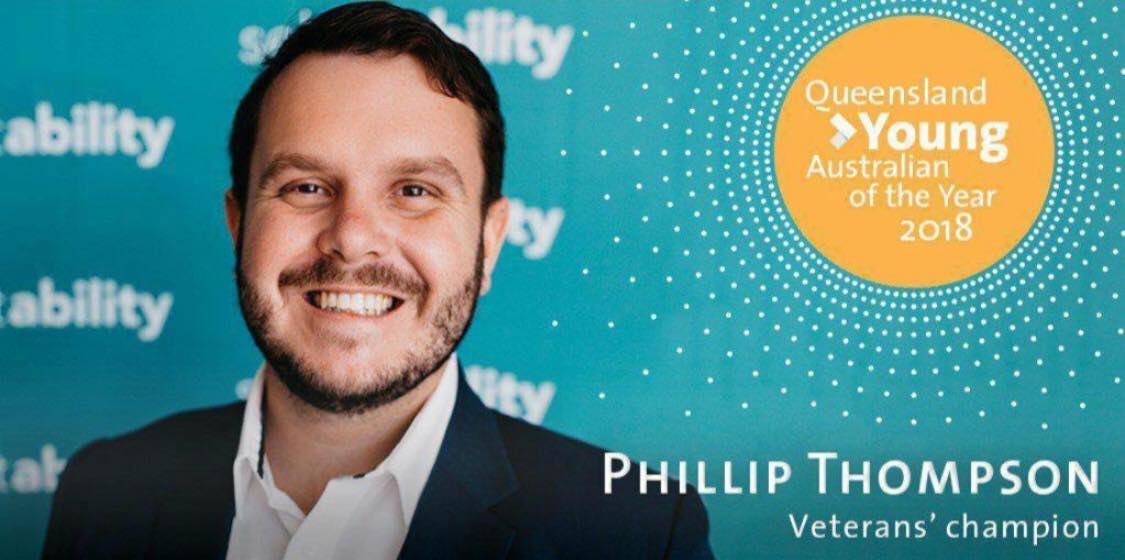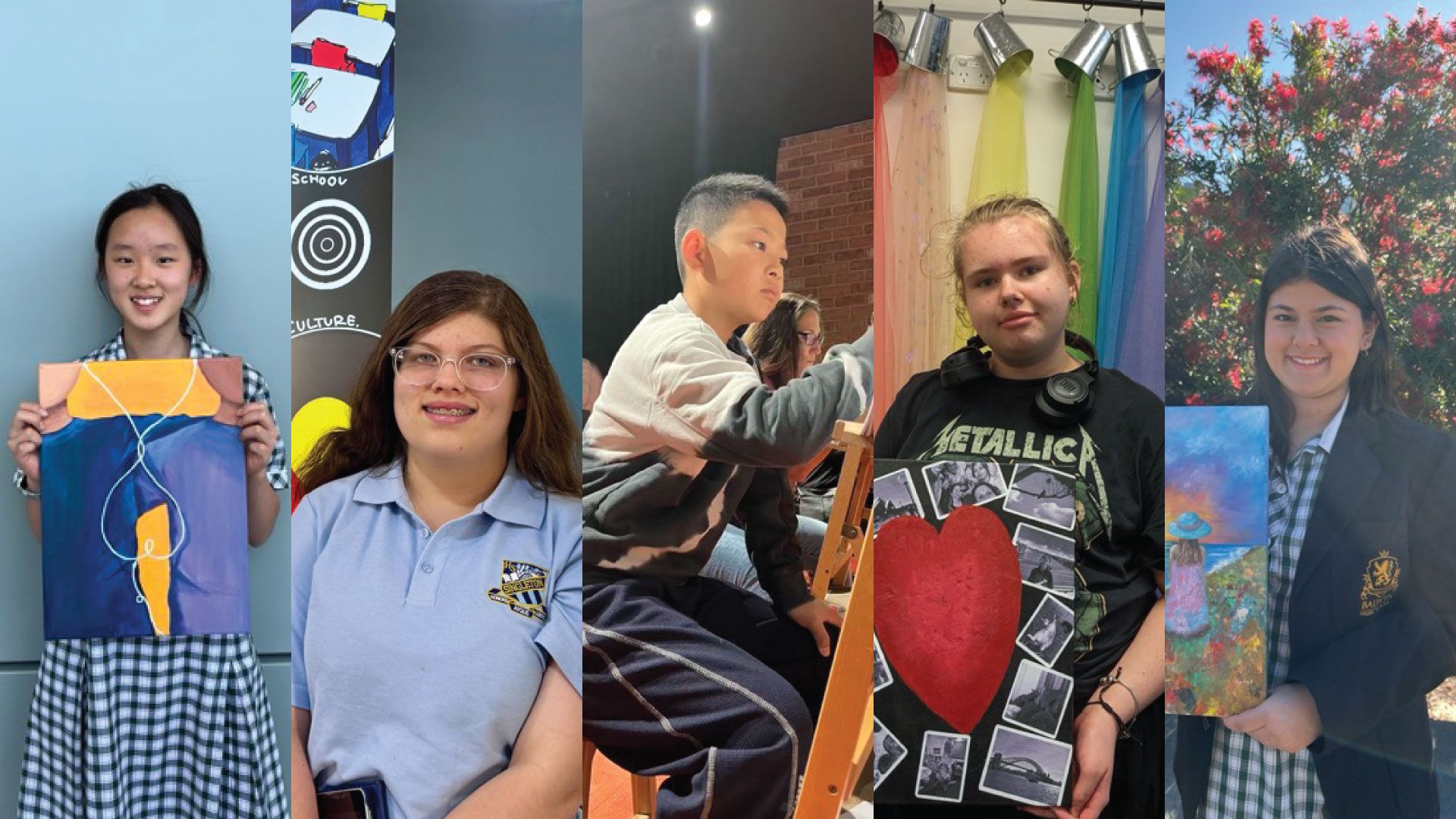Townsville veteran and R U OK? Ambassador named Queensland's Young Australian of the Year
R U OK? Ambassador Phillip Thompson has been recognised for his work as an advocate for veterans and suicide prevention
After enlisting in the Australian Army in 2006 at the age of 17, R U OK? Ambassador Phillip Thompson was deployed to East Timor and later Afghanistan. While on a dismounted patrol in 2009, Phil was wounded when an improvised explosive device detonated just a metre away. The incident left Phil with an array of medical conditions – including hearing loss and tinnitus, post-traumatic stress disorder, major depressive disorder and a traumatic brain injury – all of which have changed Phil’s life dramatically.
Since stabilising his injuries, Phillip has been an advocate for veterans’ employment, health and wellbeing, which has seen him appointed to national and government boards on mental health, self-harm and suicide. He has also competed at the Invictus Games in London and coached at Orlando in 2016. Phil also volunteers his time to listen to his fellow veterans, and has saved countless lives. Phil shares his story and his life experiences to empower other injured and ill ex-servicemen to have meaningful employment and community engagement. His volunteer efforts have seen him recognised as Queensland’s Young Australian of the Year for 2018.
This year Phil will be continuing his work with ex-servicemen and is stepping up as an R U OK? Ambassador to encourage fellow veterans to reach out and ask, “are you ok” of one another.
We sat down with Phil to discuss his passion for suicide prevention and what he hopes to achieve as Queensland’s Young Australian of the Year.
Q. Why are you proud to be maned Queensland’s Young Australian of the Year?
A. Being the Queensland Young Australian of the Year is very humbling and I am very honoured to have received this prestigious award. There is nothing more important than the preservation of life so removing the stigma around mental illness and supporting suicide prevention is not just important to me, it’s my life. These issues can’t be viewed as just a federal, state or local government or Defence issues, they’re societal issues and we need to start having open and frank conversations about them. This award recognises that.
Q. What are you hoping to achieve this year through this platform?
A. The platform this award gives will allow me to continue to raise awareness and work with the community in my hometown of Townsville and beyond. I hope to continue speaking with people in the community and taking their concerns around suicide prevention to policy makers and politicians on a state and national level. I’ll also be working with organisations like R U OK? to ensure veterans and community members find support in the people around them and know what to do if they’re concerned someone is struggling with life.
Q. Why are you passionate about suicide prevention?
A. I have come to realise that suicide is not just a Defence Force issue or a Veteran issue, it’s a societal problem. Friends of mine have died by suicide which has made me want to do more and everything in my power to help. I also know how important the support of family, friends and fellow veterans is when you’re dealing with dark thoughts and tough emotions – following my injuries I relied on that support.
Q. Reflecting on your experiences pre-and post-service, what role did the support of family, friends and peers play in getting you through the tough times?
A. Family and peer support were integral in getting me through my times of need. Having a mental illness and being personally affected by suicide, having a strong group of friends who I can talk openly with about what I’m feeling or going through really made the difference in my life post-injury. Coming from being injured in Afghanistan to being the QLD Young Australian of the Year is a testament to my wife Jenna Thompson and my circle of friends.
Q. Why do you believe in the power of conversation?
A. Without these R U OK? conversations people won't always feel comfortable disclosing how they’re really feeling. Peer support, talking to your friends and family is not about replacing therapy or counselling sessions, it’s about making giving someone a safe space to articulate what’s going on and find out what support mechanisms are available in the community. To me, the power of conversations is that we’re stronger together. No one should have to face the tough moments alone.
If you or a loved one need extra support the Veterans and Veterans Families Counselling Service provide free and confidential counselling to veterans, veterans families and eligible ADF personnel on 1800 011 046.






















